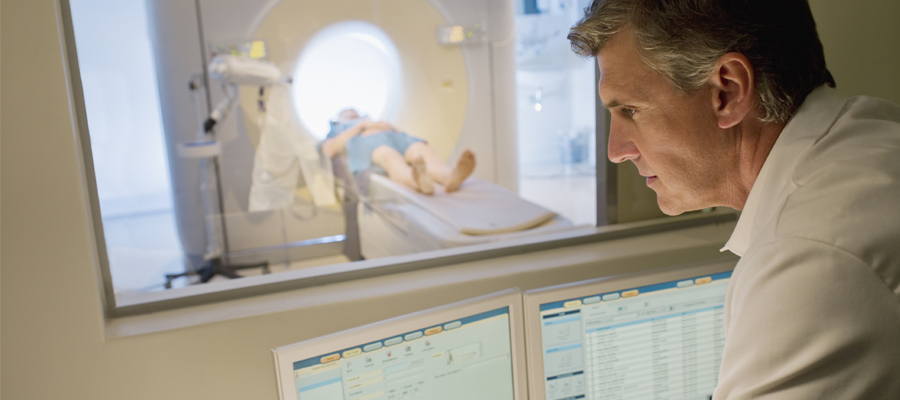Radiation oncology priorities for clinical trials
13 May 2020
By Davi Kaur, Head of Communication, EORTC HQ, Brussels, Belgium
EORTC recently addressed the priorities of radiation oncology with academic clinical researchers coming from leading cancer centres and institutes across the globe. The objective of the meeting organised as the state of science discussion, was to define the new challenges and opportunities for clinical research in radiation oncology. The outcome of the meeting was published in a paper in the European Journal of Cancer1.
In recent years, cancer treatment and care has developed rapidly with the emergence of precision medicine and the changes in technologies and techniques for radiotherapy and surgery. However, unlike systemic therapy, where there is a defined process for pre marketing clinical trial evaluation, for novel radiation oncology approaches and technologies, randomised clinical trials have been limited, due to the investments in infrastructure needed to host the new technology, in order to conduct clinical trials.
With the emergence of highly conformal radiation techniques, particle therapies, the rise of artificial Intelligence in imaging and the combination of novel drugs with radiotherapy, the landscape of radiation oncology is rapidly changing.
During the 2-day “State of Science” meeting, the experts addressed the following topics:
- Biology-guided dosing in radiation therapy
- How to address new technologies: Focus on Proton therapy:
- How artificial intelligence may change practice in radiation oncology
- Targeting oligometastatic disease- who can we cure.
- Combining radiotherapy with Novel agents
They discussed current status and questions that are ready for clinical trial evaluation. The table summarises the objectives and trial design of each topic:

The discussion demonstrated the need of international cooperation and crosscutting science to define the scientific strategy and approaches to conducting the research. The experts defined the priorities as optimising combination therapies with emerging systemic treatments; understanding the role of particle therapy; refining dose fractionation and dose delivery; integrating tumour and normal tissue biology and incorporating strategies that use AI. They emphasised the fact that providing evidence to improve survival and quality of life of patients is central to this initiative.
Professor Damien Weber, Director and Chairman, Paul Scherrer Institute (PSI), Centre for Proton Therapy (CPT), Villigen PSI commented that this strategy meeting enabled the EORTC network and its associate partners to identify research venues for the coming years for radiation therapy, which is an important modality in the therapeutic armamentarium for the management of cancer. The aim is to optimize the therapeutic ratio of radiation therapy by increasing its efficacy and/or decreasing the radiation-induced adverse events and to assess the possibility to introduce new technologies or novel agent combination in achieving this critical goal.
Dr Denis Lacombe, EORTC Director General said, ‘this has a been a very important meeting for EORTC, we need to address the most prominent research questions in the area of radiation oncology, to ensure that patients will receive the best multidisciplinary standard of care. Providing evidence based treatment that is cost effective, is beneficial to the patient and to society at large”.
Reference:
1The European Organisation for Research and Treatment of Cancer, State of Science in Radiation Oncology and Priorities for Clinical Trials Meeting Report
Gillian Thomas , Elizabeth Eisenhauer , Robert G Bristow , Cai Grau , Coen Hurkmans , Piet Ost , Matthias Guckenberger , Eric Deutsch , Denis Lacombe , Damien C Weber , European Organisation for Research and Treatment of Cancer (EORTC). Eur J Cancer, 2020 May; 131:76-88. doi:10.1016/j.ejca.2020.02.050. Epub 2020 Apr 16.
Related News
Meet the new EORTC Board
9 Jul 2024
We are pleased to announce the release of the EORTC 2023 Annual Report
17 Jun 2024
Dr Denis Lacombe, EORTC CEO, appointed stakeholder co-chair of ACT EU advisory group
24 May 2024
Clinical Trials Day 2024: a Q&A on pragmatic clinical trials
20 May 2024
EORTC/EMA workshop suggests an international way forward for treatment optimisation studies
8 May 2024
EORTC’s Participation at the ESTRO Congress 2024
29 Apr 2024
EORTC: Advancing research and treatment for rare cancers
29 Feb 2024
EORTC Fellowship Programme: celebrating more than 20 years of impactful collaboration
22 Feb 2024
Appointment of Malte Peters as EORTC Strategic Alliance Officer
9 Feb 2024
Unique series of workshops in partnership with the European Medicines Agency (EMA)
7 Feb 2024


